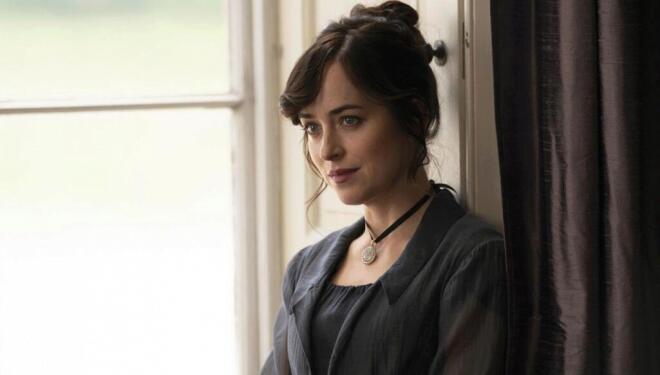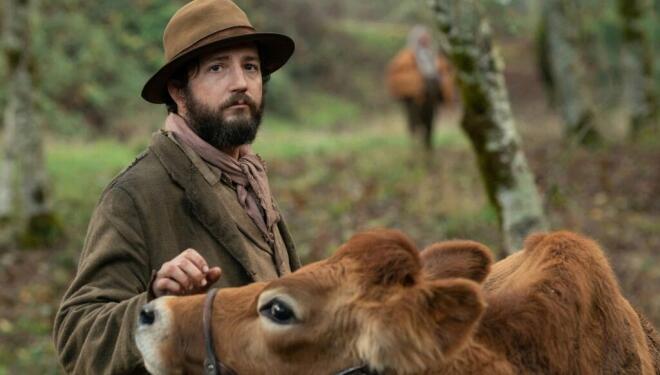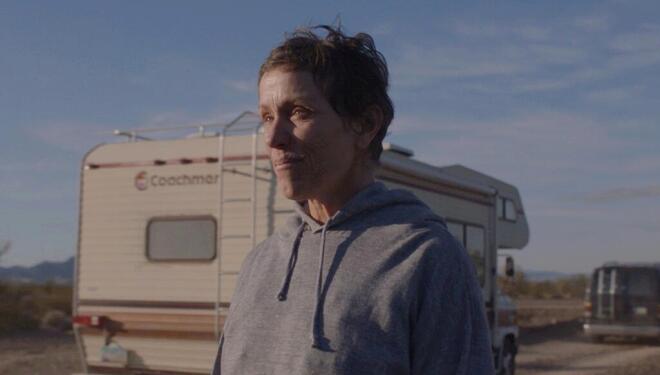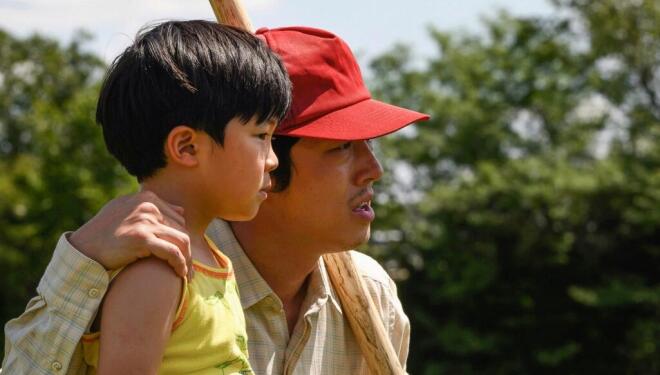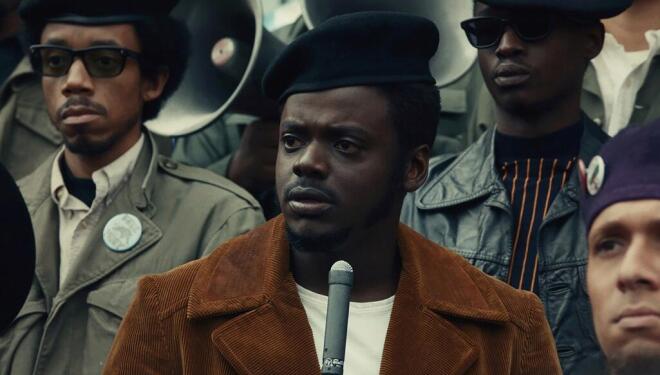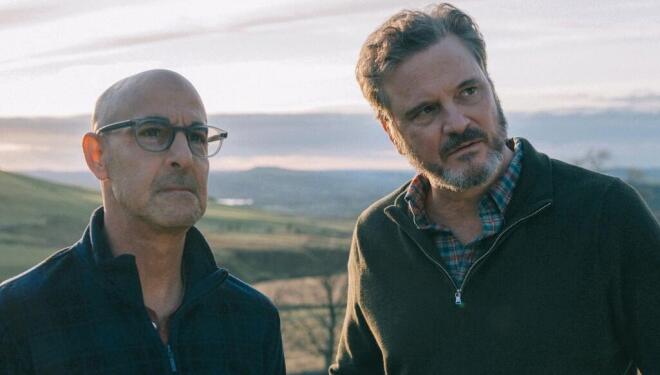
Writer-director Harry Macqueen's road trip drama follows a middle-aged gay couple, played by the endlessly absorbing Colin Firth and Stanley Tucci. Sam (Firth) is a musician and Tusker (Tucci) is a writer with early on-set dementia, embarking on a campervan journey through the Lake District – revisiting memories old and fond.
Tusker’s illness isn’t clear at first. If you didn’t know anything about the film beforehand, you wouldn’t necessarily guess that dementia drives the story. Both of them sit in the front seats of the campervan: talking, moaning, quibbling as couples do. It’s only when eating in the café afterwards that Tusker has to politely reassure his husband, ‘Sam. I’m fine,’ that you know something’s up.
The subtlety of Macqueen’s writing – the small hints and significant details – softly feels itself through the pain, which has to be bandaged with Tusker’s silly but excellent humour. During one moment, where Sam encourages Tusker to keep audio diaries to track the illness, Tusker announces ‘Welcome to the Dementia Hour on BBC Four’.
The film commendably avoids the melodramatic. The sadness comes in drips – the restrained emotions, the secret crying – but Macqueen wants to focus on this couple’s love for each other, while they both ignore the crushing shadow that’s creeping on them both. It only makes the inevitable end more precipitous: it’s less about illness, and more about loss. An implosive storm gathers weight with every mile driven.

Photo: image.net
It’s
very quaint and white and middle-aged and middle-class, but those don’t remove
from the tragedy of their situation. The abundance of red wine, knit-wear
jumpers, and beautifully desolate Cumbrian cottages turns the trip into a
picturesque journey. Nobody can tire of seeing the sun glimmer on a perfectly
reflective lake, backdropped by colossal hills that roll into the horizon.
Cinematographer Dick Hope captures the Lake District’s beauty without neglecting
that of Sam and Tusker’s relationship.
They visit Sam’s family home, where a party’s organised. Both need air from the lovely people inside. Macqueen can switch from cordial and amusing artifice to suddenly talking seriously with such organic pathos, burrowing into your soul with single, simple lines.
Although Tusker is a born conversationalist, wielding that stereotypical guise of novelistic bohemia, his voice crumbles when discussing the hard subjects. He has a predictably wonderful way with words, even going into full Lawrence Krauss mode when explaining stars and constellations.
They move on to a cottage of their own, where much of the film’s latter half takes place. These are some of the most devastating scenes of the year. Colin Firth can’t often escape his hoity-toity, upper-class, twit-Brit persona, but Supernova proves again how genuine a dramatic actor he can be. The camera lingers hard on his broken face as finally unleashes his feelings, after days of bottling them up.
Supernova is like a play in its minimalism, prioritising these performances and the characters they engender. The connection between them feels rare, small gestures meaning so much. Love explodes largest in darkness, like stars in supernova, and this film shines exceedingly bright. But it burns, too.
Reviewed at the London Film Festival 2020. Supernova will be in cinemas from Friday 25 June.
| What | Supernova review |
| When |
25 Jun 21 – 25 Jun 22, IN CINEMAS |
| Price | £determined by cinemas |
| Website | Click here for more information |


